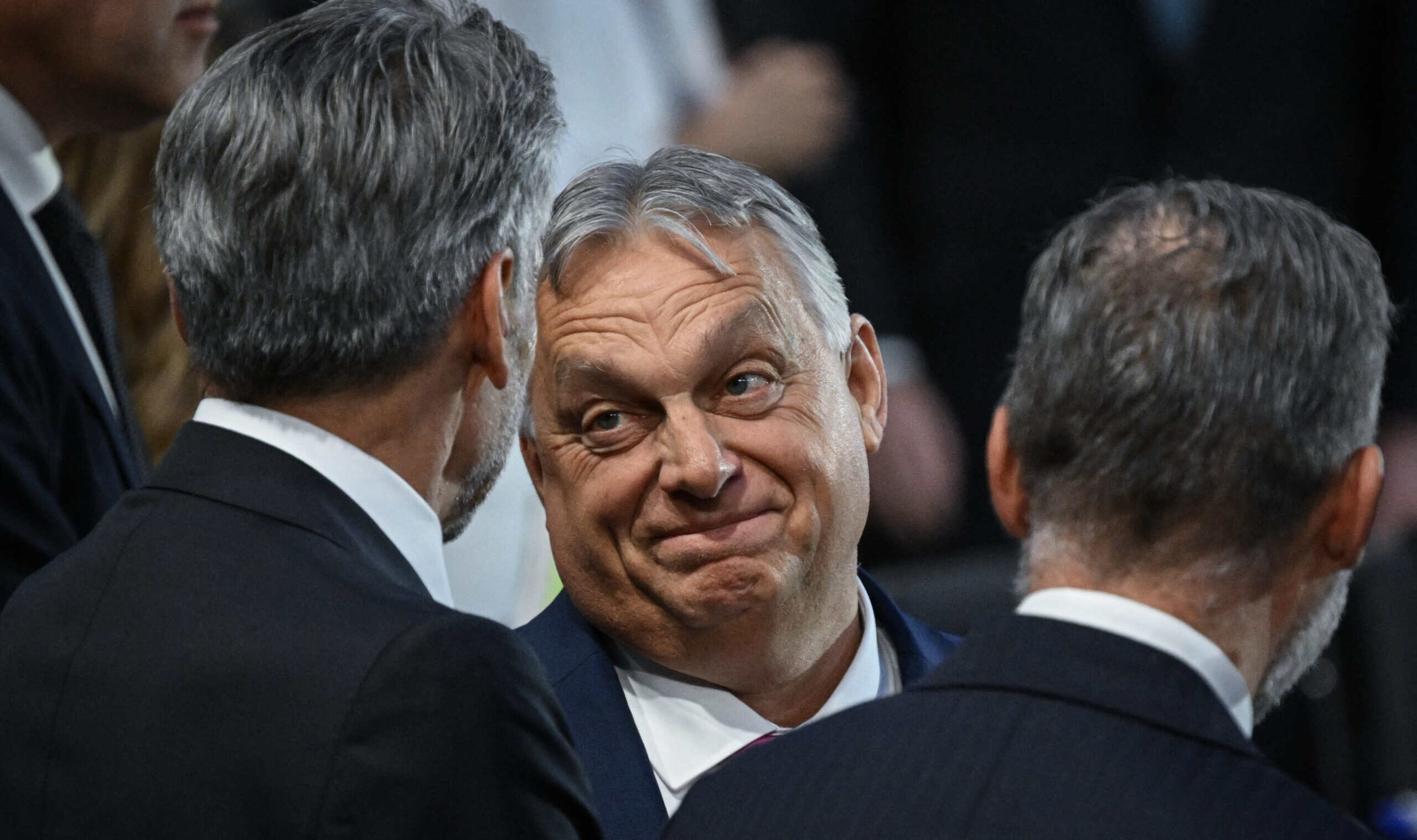Western Leaders Can Learn from Viktor Orban’s ‘Peace Mission’
A communication gap has opened between NATO and both Russia and China.

The recent NATO Summit in Washington D.C. was convened to celebrate the alliance’s 75th anniversary and address mounting challenges around the world. Despite ever increasing stakes, the bottom line of the summit’s final declaration is not substantially different from previous communiques: Ukraine will become a member of NATO at some unspecified point in the future. The summit itself ultimately turned out to be a non-event and was dominated by episodes on the sidelines.
Predictably, American domestic politics featured prominently. After a subpar performance at the first presidential debate and a brutal news cycle that took aim at Biden’s age, the president again put the spotlight on his mental acuity when he introduced Ukrainian President Zelensky as “President Putin” during a NATO press conference. Biden has since suspended his reelection bid, but his gaffes were not the only side show to overshadow the proceedings in Washington.
In the weeks preceding the summit, Hungary’s Prime Minister Viktor Orban traveled to Ukraine and Russia, to meet with the warring heads of state face-to-face. To top it off, Orban met Xi Jinping in Beijing the day before the NATO summit.
This world tour attracted a lot of attention during the Washington Summit. Orban’s diplomatic voyage to Russia has been criticized in the media and condemned within the EU. Despite negative coverage, Orban’s succinct report on his “peace mission” provides several insights worth paying attention to.
The report states that “tensions will not decrease and [Russia and Ukraine] will not start searching for a way out of the conflict without significant external involvement.” Orban bases this observation on his conversations with the Ukrainian and Russian Presidents, “neither [of whom] would like to make initiatives for a ceasefire or peace negotiations.”
The report goes on to say that the U.S. is too preoccupied with the presidential election to provide the requisite peace-oriented external involvement. If a peaceful resolution is to be worked out in the near future, the initiative will have to come from elsewhere, thus requiring the involvement of China and Turkey. This is a sober assessment, and Western leaders would be remiss to disregard it.
In an interview shortly after meeting Putin, Orban emphasized that the last conference between Putin and a Western leader took place more than two years ago, when Austria’s chancellor went to Russia to confront Putin about Russia’s conduct in the war. What Orban was trying to do by holding back-to-back meetings with Zelensky and Putin was to put his finger on the pulse and close a communication gap between Russia and the West.
Further, by meeting with Xi, Orban was arguably the only head of a NATO member state who adequately prepared to deliberate on the questions raised at the Washington Summit and brief his counterparts.
Orban’s foreign policy tour is significant for another reason. On July 1, Hungary took over the rotating presidency of the European Council, which it will hold until the end of the year. Hungary may try to leverage its presidency to add weight to Orban’s discussions with foreign leaders.
This is why Orban is being accused of violating EU treaties. It’s also why the European Commission has advised Commissioners to send lower-ranking civil servants to Ministers’ meetings organized in Budapest. Such measures are intended to snub Orban and forestall further “peace missions” as well as the attention that they receive.
Subscribe Today
Get daily emails in your inbox
The structure of the EU’s bureaucracy prevents the Hungarian Presidency from significantly impacting EU foreign policy, which is the domain of the bloc’s High Representative. Josep Borrell, the EU’s High Representative since 2019, says that Hungary has not received a mandate from the EU to conduct diplomacy and that the EU’s official position on Russia “excludes official contacts between the EU and President Putin”.
However, what Viktor Orban can do is play a game of perceptions and lean on his relationship with former President Trump, who Orban met shortly after the NATO summit. Trump also gave Orban a shoutout in his speech at the Republican National Convention. What Hungary could hypothetically do during its European Council presidency pales in comparison to what an Orban-friendly Trump White House will seek to do vis-a-vis the war in Ukraine come January 2025.
All of this has caused consternation among NATO members, but it wouldn’t if Europe and the alliance took a more sensible approach and put diplomacy back on the table.Regular consultations between Western leaders and their adversaries are possible and necessary. If a majority of those leaders believe Viktor Orban cannot be trusted, then the solution is to take a page out of his book and travel to Moscow, to render his peace mission redundant by their own concerted diplomatic efforts.